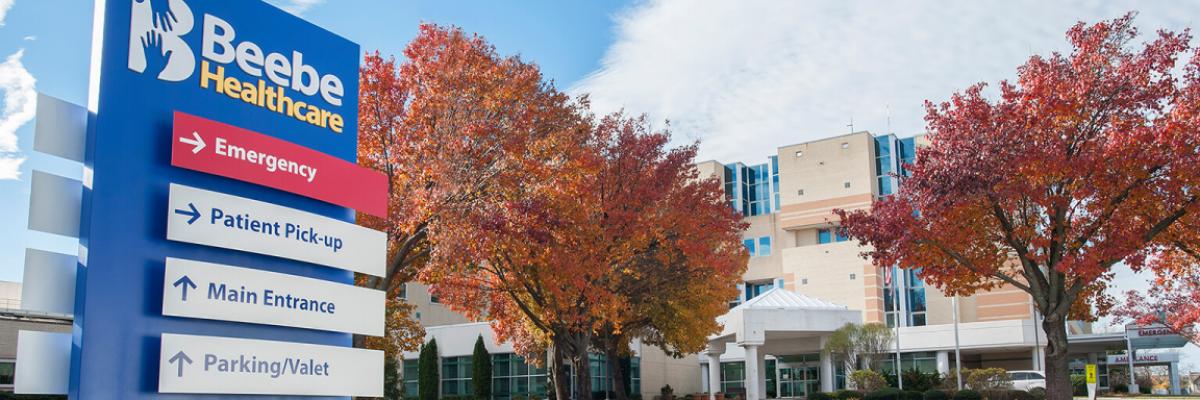Beebe Healthcare encourages community members to learn more about their hearts during September - Atrial Fibrillation (AFib) Awareness Month
Atrial Fibrillation (AFib for short) is a little known electrical problem of the heart that isn’t easy to pronounce. But the racing and fluttering in the heart that are its symptoms can be warning signs of heart failure, or of a pending heart attack or stroke.
This month, AFib Awareness Month, Beebe Healthcare joins the Heart Rhythm Society and the National Stroke Association in encouraging community members to pay attention to their heartbeat, to how they feel, and to learn about the most common type of irregular heartbeat.
What is AFib?
AFib occurs when the heart’s normal electrical signals that make it pump don’t work the way they should. They make the heart ‘fibrillate,’ and consequently the blood does not circulate efficiently throughout our bodies. This can lead to the formation of dangerous blood clots in the arteries.
Symptoms:
· Though a rapid heartbeat is an important symptom, often the patient does not feel the irregular beat.
· Dizziness or even fainting
· Tiredness
· Chest pain
· Shortness of breath
· Confusion
Who is at risk and what are the risk factors?
Today, there are millions of people in the United States with AFib, and the number is growing, according to the National Institutes of Health. While the risk increases as we age, more than half of the people in the United States with AFib are younger than 75 years of age.
Risk Factors include:
· High blood pressure
· Heart disease and/or diabetes
· Structural defects of the heart such as mitral valve prolapse
· Lung disease
· Obesity
· Life style behaviors such as consumption of alcohol, caffeine, smoking, and stress
Treatment and living with AFib
There are many treatments available for AFib, starting with several different medications used to restore and maintain the heartbeat. Cardiologists also encourage patients to control stress, to exercise and to improve their diet. If lifestyle modification and medication does not alleviate the irregularity, cardiac electrophysiologists (cardiologists who specialize in disorders and diseases of the heart’s electrical system) can perform procedures to destroy diseased tissue in the heart that cause the AFib. These procedures include catheter ablations (cryoballoon and radiofrequency).
“It is important that people, especially as they get older, pay attention to their heartbeats, and to how they feel,” says Firas El Sabbagh, MD, FHRS, Medical Director of Cardiac Electrophysiology at Beebe Healthcare and Vice Chair of Beebe’s Department of Cardiology. “Luckily, we have many treatment options for AFib, as well as for other heart rhythm disorders and diseases. With treatment and lifestyle modification, many people can recover and once again enjoy quality of life.”

Dr. Firas El Sabbagh
For more information on Cardiac Services at Beebe Healthcare, please call (302) 645-3100, ext. 5499.
Beebe Healthcare is a not-for-profit community healthcare system with a charitable mission to encourage healthy living, prevent illness, and restore optimal health for the people residing, working, or visiting in the communities we serve. It offers services throughout Southern Delaware for residents and visitors, including a 210-licensed-bed hospital, a cancer treatment center, and outpatient facilities providing walk-in care, lab, imaging, and physical rehabilitation services. For more information, please visit us online at Beebe Healthcare.
